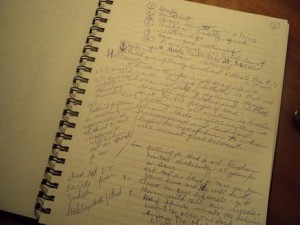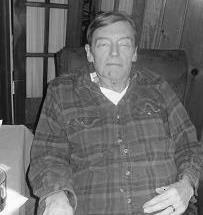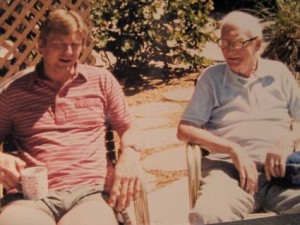Nate was not a naturally peaceful person. He was a firstborn, a Type A, high strung, always planning, making lists and setting new goals. Despite his efforts, his last few years were especially difficult. As he approached 65 without having met some of his business and financial goals, he worried more and slept less. Then the arrival of severe back pain in early 2009 seemed to squeeze out the last of his energy. Although there was an operation that would remedy his pain, just when it was within reach, pancreatic cancer came between him and his surgeon.
Nate was always a hard worker. His goal was to continue full-steam-ahead into his seventies, but debilitating back problems and deadly cancer forced him to the sidelines of life, a place he’d never been and didn’t like. As the six weeks went by, he became uncharacteristically introspective, keeping many of his thoughts to himself. I believe God had him doing difficult work during those days. Life as Nate had known it had come to a screeching halt, and suddenly there was time to think, not just about business, money and goals but about life, death and eternity.
Recently I found a journal Nate had written in 2005. Since he didn’t usually write anything longer than a Post-it note could hold, I was surprised to find it. I remembered the dates on its pages, though, having journaled my own thoughts about him during those days. He’d gone through a distressful period of restlessness, and I’d encouraged him to step out of his routine and get recharged by seeking God’s direction.
He went away for three days to think, read and pray. Later he told me he’d fasted during those days, too, allowing himself only coffee and water. His goal had been to answer this question: Am I worthy to be a Christian?
As I prayed for him at home while he was gone, not knowing what was on his mind, God brought Matthew 11:28 to my attention: “Come to me, all you that labor and are heavy laden, and I will give you rest.” So I prayed for his rest, both physically and spiritually.
Nate was agitated, edgy and without contentment during those days, probably in a crisis of personal faith. He needed to learn how to rest in the love of the Lord, separate and apart from performance, but such resting doesn’t come easily to a Type A. He wrote in his journal, “Ingratitude undermines the goodness of life by always feeling entitled to more and better.”
From the sound of things, there was a battle raging within him. Then last year, when his back pain escalated to unmanageable levels, I believe it was God asking him to stop laboring and accept his rest, but Nate couldn’t. He pushed himself harder than ever, determined to function at the same pace he always had, despite the pain.
Eventually God said, “Nate, I’m not giving up on you. Instead I’m going to let cancer come, because you’ve struggled long enough and need your rest.” But even with cancer, Nate did more questing than resting.
God is love, though, and so he put Nate in bed. I believe it was during those final days that Nate saw things God’s way. At long last he became willing to accept outward rest and inner peace. With all his back pain and then cancer, he’d finally given in.
Charles Spurgeon said, “Jesus gives a rest which develops into heaven.” That’s exactly what happened to Nate. God imposed his rest on him, and as Nate surrendered, he was ushered into heaven.
“God’s rest is there for people to enter, but those who first heard this good news failed to enter because they disobeyed God. So God set another time for entering his rest, and that time is today. For all who have entered into God’s rest have rested from their labors, just as God did after creating the world. So let us do our best to enter that rest. But if we disobey God… we will fall.” (Hebrews 4:6-7, 10-11)



